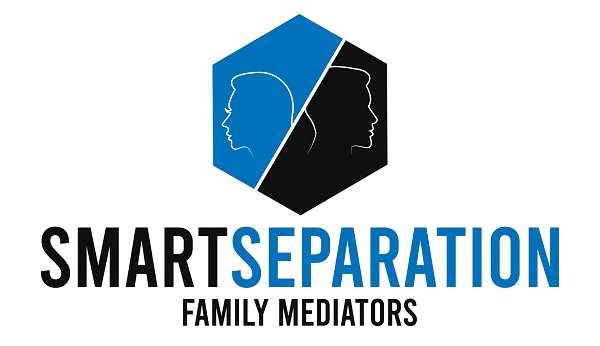Toronto Family Law Mediation vs. Court Litigation: What’s the Difference?
April 12, 2025
What Is Family Law Mediation in Toronto?
Family law mediation is a collaborative, non-adversarial approach to resolving legal issues that arise when a relationship breaks down. Unlike court litigation, which is often costly, time-consuming, and emotionally draining, family mediation offers couples a structured and cooperative environment to reach agreements outside the courtroom.
Definition of Family Mediation
Family mediation is a voluntary dispute resolution process where separating or divorcing parties work with a neutral third party, known as a family mediator, to resolve conflicts related to family matters. This process helps both individuals communicate more effectively, identify key issues, and work toward mutually acceptable solutions.
A Voluntary and Neutral Process
In Toronto—and across Ontario—family law mediation is completely voluntary. Both parties must agree to participate, and either party can choose to stop the process at any time. The mediator does not take sides or make decisions for the parties. Instead, they facilitate productive conversations, help clarify legal and emotional issues, and encourage fair outcomes.
The goal is not to “win,” but to reach a balanced agreement that both parties can live with—particularly important when children are involved.
What Issues Can Be Resolved Through Mediation?
Toronto family law mediation can address a wide range of legal issues, including:
- Parenting plans (custody and access arrangements)
- Child support and spousal support
- Division of property and debts
- Decision-making responsibility (previously known as custody)
- Holiday schedules and relocation plans
Mediation is often preferred for its confidential nature, allowing parties to discuss sensitive matters without public exposure, which is common in court proceedings.
Accredited Family Mediators in Ontario
In Ontario, accredited family mediators are professionals who meet the rigorous standards set by organizations such as:
- Ontario Association for Family Mediation (OAFM)
- Family Dispute Resolution Institute of Ontario (FDRIO)
- ADR Institute of Ontario (ADRIO)
Accredited mediators typically have backgrounds in law, social work, or psychology, and are trained in conflict resolution and Ontario family law. They must also meet ongoing professional development requirements to maintain their credentials.
In Toronto, many accredited mediators are also lawyers or mental health professionals who understand the legal, emotional, and financial complexities of separation and divorce. You can find qualified mediators through local family law firms, Legal Aid Ontario’s roster, or community mediation centres.
What Is Court Litigation in Family Law?
While Toronto family law mediation offers a cooperative route to resolving family disputes, court litigation represents a more formal and adversarial approach. For some families, litigation may be necessary—especially when communication has broken down or safety is a concern—but it’s important to understand what the process involves and how it differs from mediation.
Definition of Litigation in the Context of Family Law
In family law, litigation refers to the legal process of resolving disputes through the Ontario court system. This typically happens when spouses or parents cannot reach an agreement on their own and turn to the courts to make binding decisions on their behalf.
Common issues brought before the court include:
- Parenting time and decision-making responsibility
- Child and spousal support
- Property division under Ontario’s Family Law Act
- Enforcement or variation of existing orders
An Adversarial Process
Litigation is an adversarial process, meaning each party usually hires a lawyer to represent their interests in court. Each side presents evidence, submits formal court filings, and may appear at multiple hearings. Ultimately, a judge makes the final decision based on the facts of the case, relevant statutes, and case law.
Unlike mediation, where both parties work toward a compromise, litigation often involves one party “winning” and the other “losing,” which can lead to increased tension and long-term conflict—especially harmful when children are involved.
Court Procedures and Family Law Rules in Ontario
Family law litigation follows Ontario’s Family Law Rules, which govern how cases proceed through the court system. These rules include:
- Mandatory document disclosure
- Case conferences and settlement conferences
- Motions and trial procedures
- Deadlines for filing court documents
The process can be complex, lengthy, and expensive. It also places the power to decide your family’s future in the hands of a judge who may not fully understand the nuances of your situation.
In some cases, particularly where there is a history of abuse, power imbalance, or unwillingness to cooperate, litigation may be the most appropriate path. However, for many families in Toronto, mediation provides a more flexible and personalized solution.
Cost Comparison: Mediation vs. Litigation
When deciding between Toronto family law mediation and traditional court litigation, cost is one of the most important considerations for families. Legal expenses can quickly add up, especially when disputes drag on through the court system. Mediation offers a more affordable and efficient alternative for many couples.
Average Cost of Family Mediation in Toronto
The cost of family mediation in Toronto varies depending on the complexity of the issues and the qualifications of the mediator. On average:
- Private family mediators charge between $150 to $350 per hour.
- Full mediation sessions can range from $1,500 to $4,000 total, depending on the number of issues and sessions required.
- Government-subsidized mediation through Ontario’s Mandatory Information Program (MIP) or court-connected mediation services may be available at reduced rates—sometimes as low as $5 to $105 per party per hour, based on income.
Cost of Hiring a Family Lawyer and Going Through the Court Process
In contrast, litigating a family law matter in court can be significantly more expensive:
- Hiring a family lawyer in Toronto typically costs between $250 to $600 per hour.
- A full court case—especially if it goes to trial—can cost $15,000 to $50,000+ per party.
- Additional costs may include court filing fees, expert reports, and document preparation.
Even relatively simple cases can quickly become costly if conflict escalates or there are repeated court appearances.
Financial Savings with Mediation
Choosing Toronto family law mediation over litigation can lead to significant financial savings:
- Fewer billable hours: Mediation is typically faster, requiring fewer sessions and less paperwork than court proceedings.
- Shared cost structure: In most cases, both parties split the cost of one mediator rather than paying for separate legal counsel.
- Reduced emotional costs: While not monetary, the emotional strain of court battles can also lead to long-term financial consequences, such as lost work time or additional therapy costs.
Ultimately, mediation allows families to preserve more of their financial resources—money that can be better used for children’s needs, new housing, or personal recovery post-separation.
Time to Resolution
Mediation Often Concludes in Weeks or Months
Family mediation in Toronto is designed to be efficient and solution-focused. Once both parties agree to mediate and select an accredited mediator, the process can move forward quickly. Most mediation cases are resolved within:
- 2 to 5 sessions over a period of a few weeks to a few months, depending on the complexity of the issues.
- Sessions are scheduled at mutually convenient times, offering flexibility that the court system simply cannot match.
The streamlined nature of mediation means families can move forward sooner—emotionally, financially, and logistically.
Litigation May Take Months or Even Years
In contrast, family law litigation in Ontario is significantly slower. Delays are common due to:
- Court backlogs, especially in Toronto and other high-demand jurisdictions
- Mandatory steps like case conferences, motions, and disclosure obligations
- Scheduling conflicts for lawyers, judges, and courtrooms
Even relatively straightforward cases can take six months to over a year, while more complex or contentious disputes may stretch to two or three years before a final decision is reached. The delays not only prolong stress but can also increase legal costs significantly.
Why Time Matters for Families With Children
For families with children, time is more than just a convenience—it can directly impact a child’s sense of stability, routine, and emotional well-being. Ongoing parental conflict, long delays in decision-making, and uncertain parenting arrangements can lead to:
- Increased anxiety or behavioural issues in children
- Disruptions in schooling or caregiving
- Missed opportunities to establish consistent parenting plans
By choosing Toronto family law mediation, parents can more quickly reach agreements that serve the best interests of their children, creating a more stable and supportive environment during a difficult transition.
Control over the Outcome
A key difference between Toronto family law mediation and court litigation is the level of control each party has over the final outcome. Mediation empowers families to make decisions together, while litigation places that power in the hands of a judge.
Mediation Encourages Mutual Decision-Making
In family mediation, both parties are encouraged to actively participate in the process and have a direct say in shaping the final agreement. With the help of a neutral mediator, separating spouses or co-parents can:
- Explore creative solutions tailored to their family’s unique needs
- Adjust timelines, support arrangements, and parenting schedules in ways that work for everyone involved
- Maintain a collaborative tone that prioritizes long-term cooperation—especially important when children are involved
This level of involvement gives both parties a sense of ownership over the outcome, which often results in greater satisfaction and long-term compliance with the agreement.
Litigation Results in a Court-Imposed Judgment
In contrast, litigation removes much of that control. After hearings, filings, and possibly a trial, a judge will make the final decision—even if neither party agrees with it. Judges must follow Ontario law and established legal precedents, which can leave little room for flexible or personalized solutions.
Litigation can result in:
- Rigid court orders that may not reflect the practical realities of your family
- Increased resentment or dissatisfaction if one or both parties feel the outcome was unfair
- Future legal battles if the judgment is contested or needs to be varied later
While some cases—such as those involving domestic violence or power imbalances—may require court intervention, most families benefit from the increased autonomy and problem-solving potential that mediation offers. Divorce or separation is never easy—but how you choose to resolve disputes can significantly affect your emotional well-being and the overall family dynamic. When comparing Toronto family law mediation to litigation, the emotional toll of each process is an essential factor to consider, especially when children are involved.
Mediation Promotes Respectful Communication
Family mediation encourages a collaborative atmosphere, where both parties are guided to communicate respectfully and focus on resolving issues constructively. Mediators are trained not only in Ontario family law but also in conflict resolution and interpersonal dynamics. This allows them to:
- Diffuse tension during discussions
- Ensure each party has a voice and feels heard
- Keep the focus on future-oriented solutions rather than dwelling on past grievances
This environment often leads to reduced emotional strain and better co-parenting relationships post-separation. Children especially benefit when parents can cooperate without hostility or blame.
Litigation Can Escalate Conflict
Court litigation, on the other hand, tends to be inherently adversarial. Each party is often encouraged to “make their case” in a way that can highlight faults, inflame emotions, and worsen pre-existing tensions. The process of cross-examination, affidavits, and public court appearances can:
- Deepen resentment between parties
- Lead to feelings of loss of control, anxiety, or helplessness
- Place children in the middle of parental conflict, potentially causing long-term emotional harm
Litigation may be necessary in high-conflict or abusive situations, but for most families, it adds additional layers of stress during an already difficult time.
Choosing Toronto family law mediation helps protect not only your emotional well-being but also your family’s ability to heal, rebuild, and move forward.
Legal Enforceability
One of the most common concerns families have when considering Toronto family law mediation is whether the outcomes are legally binding. The good news is that with the proper steps, mediated agreements can carry the same legal weight as court orders—while offering more flexibility in how you get there.
Mediated Agreements Can Be Legally Binding
In Ontario, a mediated agreement becomes legally enforceable when it is:
- Put into writing
- Signed by both parties
- Witnessed and ideally signed in the presence of legal counsel
Once these steps are completed, the agreement is considered a domestic contract under Ontario’s Family Law Act. It can then be enforced like any other legal contract.
If parties wish, the agreement can also be incorporated into a court order by filing it with the Ontario family court, providing an added layer of enforceability.
Lawyers Can Review Agreements Before Signing
To ensure fairness and enforceability, it’s strongly recommended that each party obtains independent legal advice before signing the final mediated agreement. In fact, many accredited mediators in Toronto require this step as part of the process.
Lawyers can:
- Review the terms for legal soundness
- Explain your rights and obligations
- Help protect against future challenges based on claims of coercion, misunderstanding, or unfairness
This added legal review gives both parties peace of mind that the agreement will hold up in court, if needed.
Court Orders Are Legally Binding by Default
In contrast, outcomes from litigation—whether by judge’s decision or consent order—are automatically legally binding and enforceable under Ontario law. If one party fails to comply with a court order, the other can seek enforcement through:
- Family Responsibility Office (FRO) for support payments
- Court motions to enforce parenting time or property orders
- Penalties, including garnishment of wages or, in extreme cases, imprisonment
While this legal enforceability is a strength of the court system, it often comes with higher emotional and financial costs. Mediation, when done properly, offers a legally sound alternative without sacrificing control or cooperation.
Best Interests of the Children
When families separate or divorce, the most critical concern is often the well-being of the children. Both Toronto family law mediation and litigation aim to prioritize children’s needs, but the approach and impact can vary significantly.
Mediation Focuses on Child-Centred Solutions
Family mediation is designed to keep the best interests of the children at the forefront. Accredited mediators in Toronto are trained to help parents:
- Develop realistic and flexible parenting plans
- Focus on co-parenting communication and long-term collaboration
- Address emotional and practical needs like school schedules, healthcare, and special activities
Because the process is cooperative, parents are more likely to craft parenting arrangements that reflect their child’s unique needs—not just legal standards. Mediation also reduces exposure to parental conflict, which research consistently shows is one of the most harmful factors for children during a separation.
Many mediators even offer child-inclusive mediation, where a trained child specialist speaks with the children (in an age-appropriate way) and brings their voice into the process—without placing them in the middle.
Litigation May Involve Assessments and Create Tension
In contrast, litigation often leads to more formal and invasive processes, especially when parenting is disputed. This may include:
- Section 30 assessments under the Children’s Law Reform Act, conducted by psychologists or social workers
- Office of the Children’s Lawyer (OCL) involvement to investigate and make recommendations
- Cross-examinations and affidavits, which can deepen conflict between parents
While these tools can be necessary in high-conflict or safety-related cases, they can also lead to stress for children, who may feel caught in the middle or pressured by the system.
Litigation is less about collaboration and more about presenting evidence to persuade a judge—who may or may not fully understand your child’s specific circumstances.
Choosing Toronto family law mediation helps create child-focused solutions
When Mediation May Not Be Appropriate
While Toronto family mediator is an excellent option for many separating couples, it’s not the right solution for every situation. Certain circumstances require more formal legal intervention to ensure fairness, safety, and legal protection.
Cases Involving Domestic Violence or Power Imbalance
Mediation is a voluntary and cooperative process—but when there is a history of domestic violence, intimidation, or a significant power imbalance, mediation may not be safe or effective. In these cases, one party may feel unable to speak freely or advocate for their needs, even with a neutral mediator present.
Ontario mediators are trained to screen for safety concerns before and throughout the process. If mediation is deemed inappropriate, they may decline to proceed and refer the parties to alternative resources such as:
- The Family Court system
- Legal Aid Ontario
- Supportive legal advocacy services for survivors of abuse
Urgent Situations Requiring Immediate Court Action
In urgent family law matters—such as child abduction, refusal to return a child, or imminent financial harm—the court system provides tools for swift intervention. Mediation is not designed for emergency resolution and cannot impose binding orders without both parties’ agreement.
In such cases, turning to a family lawyer or filing a motion in family court may be the most appropriate course of action.
Legal Advice Is Still Crucial in Mediation
Even when mediation is appropriate, it’s important to remember that mediators do not provide legal advice. They facilitate discussions but do not represent either party or offer legal opinions.
That’s why every participant in family mediation—especially in Toronto—should still seek independent legal advice before signing any agreement. A lawyer can:
- Review the proposed terms
- Ensure your rights and responsibilities are protected under Ontario law
- Help identify any long-term risks before the agreement becomes legally binding
As an experienced family and divorce mediator in Toronto, I often write blogs to provide insights, tips, and resources on family mediation and divorce in Ontario. Follow my blog to stay informed and empowered during challenging times.



